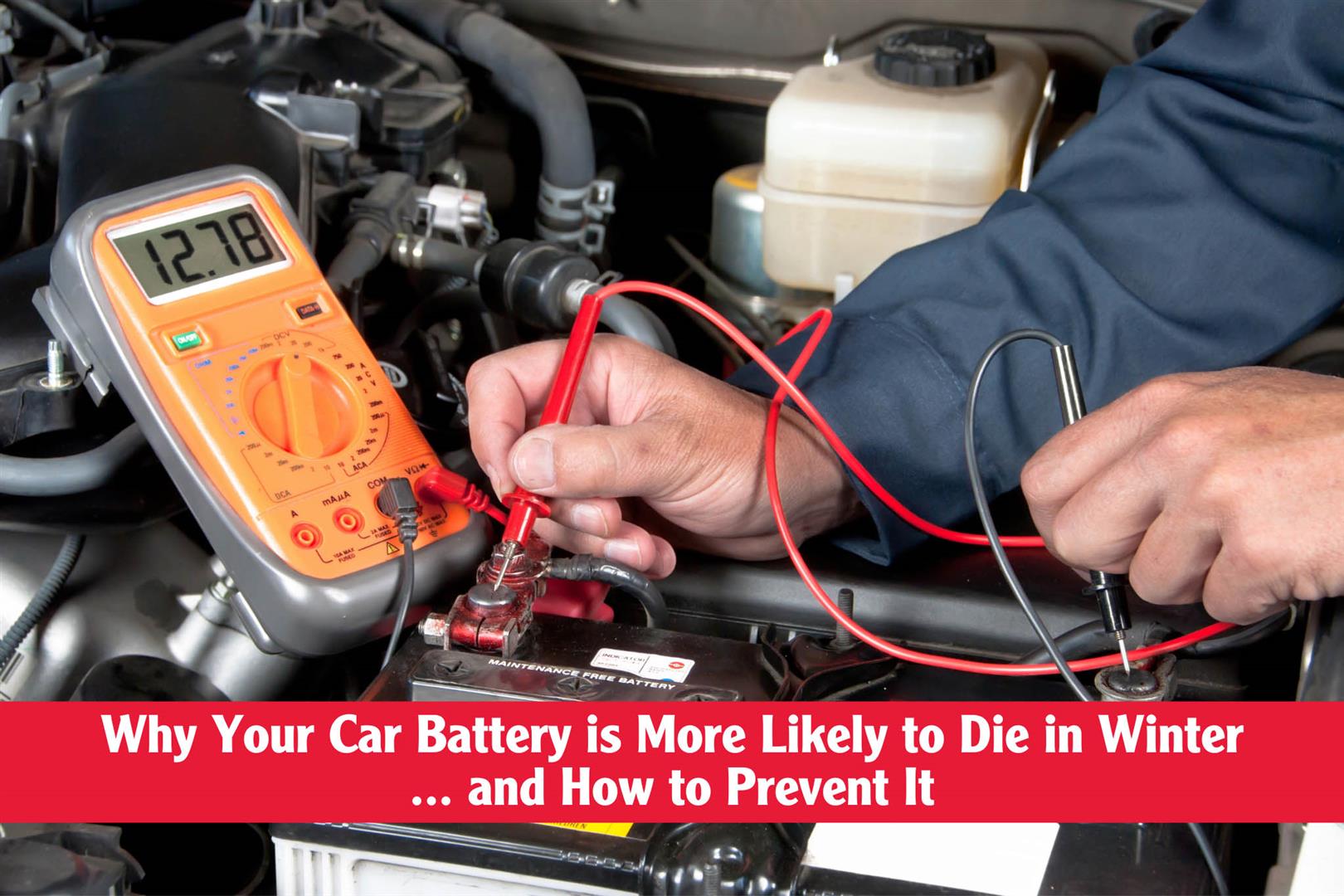Posted on 1/6/2025

Winter in Boulder, Colorado, brings breathtaking snowy landscapes and plenty of opportunities for skiing at Eldora and the resorts on the I70 corridor, but it also delivers frigid temperatures that can wreak havoc on your car’s battery. Understanding how cold weather affects your battery and taking steps to maintain it can save you from the frustration of a vehicle that won’t start on a chilly morning. Why Cold Weather Drains Your Battery Car batteries rely on a chemical reaction to generate electricity. When temperatures drop, these chemical reactions slow down, reducing the battery’s ability to produce power. At 32°F, a battery operates at about 80% of its capacity; at 0°F, that drops to just 60%. Simultaneously, your car’s engine demands more power to start in the cold due to thicker oil and sluggish engine components. This combination puts your battery under serious strain. Signs Your Battery May Be Struggling He ... read more
Posted on 11/18/2024

When winter arrives in Boulder, it brings more than just chilly weather and snowy roads. Cold temperatures can make engines work harder, especially when it comes to starting up on those freezing mornings. If you’ve ever struggled to get your car going on a frigid day, you’re not alone! But there’s a powerful trick to keeping your engine running smoothly this winter, and it has to do with a little-known, high-impact fuel system cleaner. Here’s what you need to know about how the right fuel system cleaner can make a big difference in winter driving. Why Winter Puts Extra Strain on Your Engine During the winter, the cold affects more than just your car’s battery—it also impacts your fuel system. Low temperatures can cause fuel to thicken, making it harder for your car to start. This is why a clean, well-maintained fuel system is essential for a smooth, reliable winter driving experience. Over time, fuel injectors and other critical p ... read more
Posted on 11/4/2024

When winter hits Boulder, many drivers find themselves dealing with a frustrating problem: a dead car battery. Cold weather is hard on car batteries, which is why they often fail just when you need them most. Understanding why this happens, and what you can do to prevent it, could save you from getting stranded on a freezing morning. Here’s what you need to know to keep your car running smoothly all winter long. Why Do Car Batteries Die in Winter?1. Cold Temperatures Slow Down Chemical Reactions Car batteries rely on chemical reactions to produce power. When temperatures drop, these reactions slow down, meaning the battery can’t produce as much power. This is why a battery that seemed fine in the summer might suddenly struggle in the winter. 2. Engines Need More Power to Start in Cold Weather Cold weather thickens engine oil, making it harder for the engine to turn over. This requires more power from the battery ... read more
Posted on 2/5/2024

Wouldn’t it be great if you knew to replace your car's battery before your vehicle refuses to start? Which seems to always be at the most inconvenient time. Well you can, when you know to look for these 6 common signs that your battery may be approaching the end of its life. 1. Age of the Battery The average lifespan of a car battery is typically around 3 to 5 years. If your battery is approaching or has surpassed this age range, it's a good idea to proactively consider a replacement. Aging batteries may not hold a charge as effectively, increasing the risk of being stranded with a dead battery. 2. Slow Engine Crank When you turn the key in the ignition, and the engine cranks slowly, it's a sign that your battery is losing its capacity. A healthy battery provides the necessary power to start the engine promptly. If you notice a sluggish crank, it's time to have your battery tested or replaced. 3. Frequent Jump Starts If you fi ... read more
Posted on 1/22/2024

When a car won’t start, it’s common to jump to the conclusion that the battery is bad. But the battery is far from the only thing that will prevent a car from starting. Often the culprit is the alternator. The alternator plays a crucial role in your vehicle’s charging system. It is responsible for charging the battery and powering the electrical systems while the engine is running. A malfunctioning alternator can lead to various issues. So how do you know if it’s the alternator that’s at fault? Here are some of the most common signs and what to do about it: Dimming Headlights and Electrical Issues One of the most common signs of a failing alternator is dimming headlights. If you notice your headlights becoming noticeably dimmer while driving, it could be a clear indicator that the alternator is not generating enough power. Additionally, you might experience flickering dashboard lights or other electrical anomalies ... read more